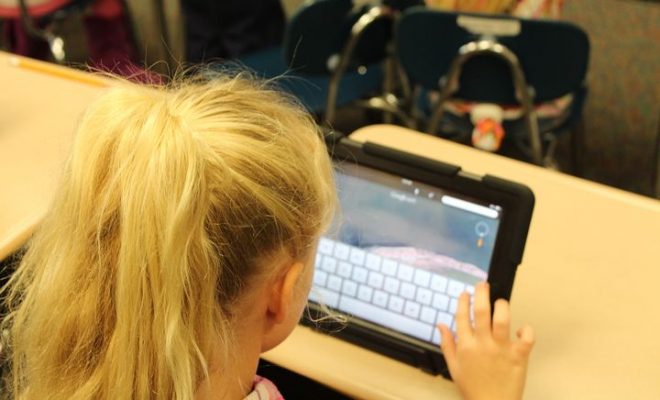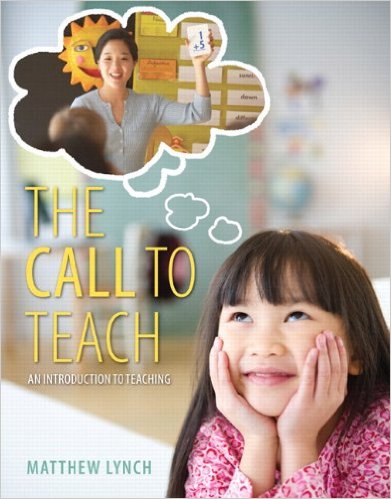8 More Reasons the U.S. Education System is Failing
In the first part of this series, I discussed 10 reasons the U.S. education system is still struggling to return to its glory days. In thinking about the future of education in this great nation, we are inspired by innovation. At the same time, K-12 institutions seem notoriously slow to adapt to the new practices and technologies that are constantly emerging. This is not only a disservice to students, but also problematic for the economy at large. Better access to top-notch education starts before Kindergarten – not after a high school diploma has been earned. In the final part of my series, I continue to examine the problems hindering the U.S. education system from being all that it can be.
- We still do not know how to handle high school dropouts. It seems that every time the issue of high school dropouts is discussed, it all centers on money. U.S. Census Statistics tell us that 38 percent of high school dropouts fall below the poverty line, compared with 18 percent of total households in every demographic. Dropouts are also 40 percent more likely to rent their residences and spend $450 less per month on housing costs than the overall population. Only around 60 percent of dropouts own vehicles and they spend over $300 less on entertainment annually than average Americans. It’s clear that a high school diploma is in fact the ticket to higher earnings, at least on a collective level. The negative financial ramifications of dropping out of high school cannot be denied, but the way they are over-emphasized seems like a worn-out tactic to me. Instead of focusing on students as earners, we really need to value them as learners so that we can encourage them to finish their high school education.
- We have not achieved education equity. Equity in education has long been an ideal. It’s an ideal celebrated in a variety of contexts, too. Even the Founding Fathers celebrated education as an ideal – something to which every citizen ought to be entitled. Unfortunately, though, the practice of equity in education has been less than effective. Equity, in the end, is a difficult ideal to maintain and many strategies attempting to maintain it have fallen far short in the implementation. To achieve equity, school systems need to have an approach for analyzing findings about recommended shifts in learning approaches and objectives. These approaches should also help teachers and administrators understand not what they have to avoid but what it is that they can do to achieve optimal equity moving forward.
- Technology brings a whole new dimension to cheating. Academic dishonesty is nothing new. As long as there have been homework assignments and tests, there have been cheaters. The way that cheating looks has changed over time, though. Technology has made it easier than ever. Perhaps the most interesting caveat of modern-day cheating in U.S. classrooms is that students often do not think they have done anything wrong. Schools must develop anti-cheating policies that include technology and those policies must be updated consistently. Teachers must stay vigilant, too, when it comes to what their students are doing in classrooms and how technology could be playing a negative role in the learning process. Parents must also talk to their kids about the appropriate ways to find academic answers and alert them to unethical behaviors that may seem innocent in their own eyes.
- We still struggle with making teacher tenure benefit both students and teachers. One of the most contested points of teacher contracts is the issue of tenure. Hardline education reformers argue that tenure protects underperforming teachers, which ends up punishing the students. Teachers unions challenge (among other reasons) that with the ever-changing landscape of K-12 education, including evaluation systems, tenure is necessary to protect the jobs of excellent teachers who could otherwise be ousted unfairly. It can often be a sticking point – and one that can lead to costly time out of classrooms, as recently seen in large school systems like New York City and Chicago. Now, I’m not suggesting that teachers just “give up” but I would support adjusting the expectations for tenure. It seems an appropriate step in the right direction for teachers in all types of schools. That energy then can be redirected towards realistic and helpful stipulations in teachers’ contracts that benefit the entire industry.
- More of our schools need to consider year-round schooling. Does it work? The traditional school year, with roughly three months of vacation days every summer, was first implemented when America was an agricultural society. The time off was not implemented to accommodate contemporary concerns, like children needing “down time” to decompress and “be kids.” The system was born out of economic necessity. In fact, the first schools that went against the summers-off version of the academic calendar were in urban areas that did not revolve around the agricultural calendar, like Chicago and New York, as early as the mid-1800s. It was much later, however, that the idea as a whole gained momentum. Overall, year-round schooling seems to show a slight advantage academically to students enrolled, but the numbers of students are not high enough to really get a good read on it at this point. What does seem clear, however, is that at-risk students do far better without a long summer break, and other students are not harmed by the year-round schedule.
- We are still wrestling the achievement gap. Earlier this month, the U.S. Department of Education released student performance data in its National Assessment for Educational Progress report. The data is compiled every two years and it assesses reading and math achievements for fourth and eighth graders. This particular report also outlines differences between students based on racial and socioeconomic demographics. The data points to the places in the U.S. that still struggle with inequality in student opportunity and performance, otherwise known as the achievement gap. The achievement gap will likely always exist in some capacity, in much the same way that the U.S. high school dropout rate will likely never make it down to zero. This doesn’t mean it is a lost cause, of course. Every student who succeeds, from any demographic, is another victory in K-12 education and it benefits society as a whole. Better recognition by every educator, parent and citizen of the true problem that exists is a start; actionable programs are the next step.
- We need to consider how school security measures affect students. In theory, parents and educators would do anything to keep students safe, whether those students are pre-Kindergartners or wrapping up a college career. Nothing is too outlandish or over-the-top when it comes to protecting our kids and young adults. Metal detectors, security cameras, more police presence in school hallways, gated campuses – they all work toward the end goal of sheltering students and their educators, protecting some of the most vulnerable of our citizens. Emotions aside, though, how much does school security really increase actual safety? Do school security efforts actually hinder the learning experience? It sounds good to taut the virtues of tighter policies on school campuses but is it all just empty rhetoric? Given the fact that state spending per student is lower than at the start of the recession, how much should schools shell out on security costs? Perhaps the best investment we can make to safeguard our students and educators is in personal vigilance. Perhaps less reliance on so-called safety measures would lead to higher alertness.
- We need to make assistive technology more available for students with disabilities. A key to improving the educational experience for students with disabilities is better accommodations in schools and continued improvements in assistive technology. Assistive technology in K-12 classrooms, by definition, is designed to “improve the functional capabilities of a child with a disability.” While the word “technology” automatically conjures up images of cutting-edge electronics, some assistive technology is possible with just simple accommodations. Whether high-tech or simple in design, assistive technology has the ability to transform the learning experiences for the children who benefit. Assistive technology is important for providing a sound education for K-12 students with disabilities but benefits the greater good of the country, too. Nearly one-fourth of a specific student population is not being properly served and with so many technological advances, that is a number I believe can drop. Assistive technology in simple and complex platforms has the ability to lift the entire educational experience and provide a better life foundation for K-12 students with disabilities.
As you may have now noticed, public education underachievement is not the result of one problem. It is a collection of influences that undercut the cultural importance of broad-based knowledge. To reach better outcomes, we must peel back the layers of policy and perception to their cores. I hope you have enjoyed this careful analysis of the present state of K-12 public education in America and its problems and issues. The changes suggested will benefit future generations of students and citizens.
Click here to read all our posts concerning the Achievement Gap.





